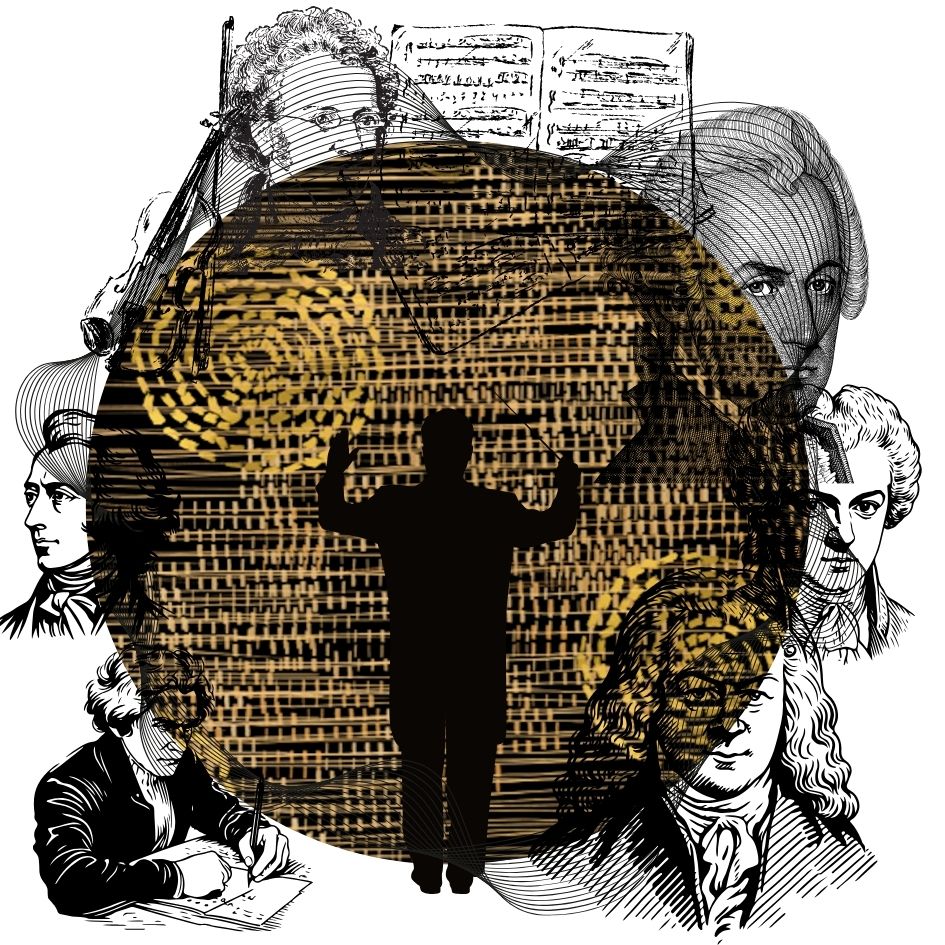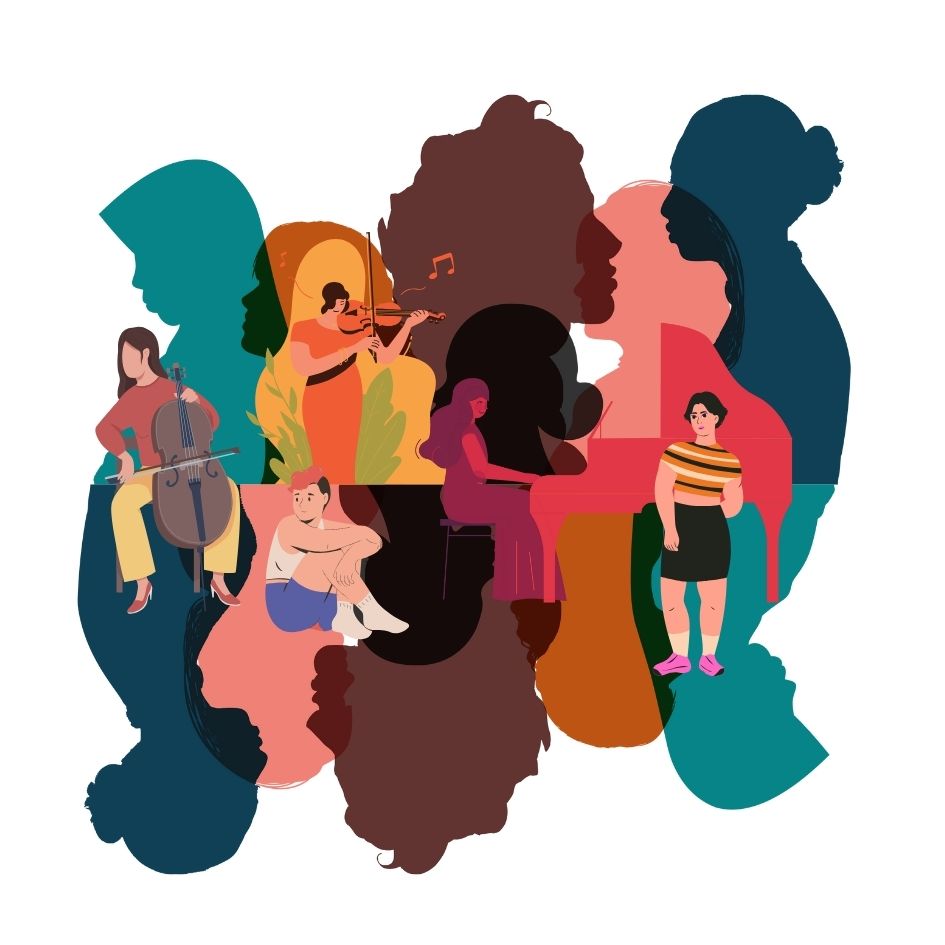
About women and BIPOC composer's underrepresentation
in Western Classical Music.
During my Master’s in Musicology at UMass, I worked closely with mentor Marianna Ritchey, and I conducted research on the intersection between the witch hunts, the establishment of capitalism in Europe, and consequential underrepresentation of women and BIPOC in the Western musical canon. My thesis “The Voice of the Other: The Influence of Capitalism in the Representation of Gender and Race in Western Classical Music” is published and open access. I will resume this work in January 2025, as a visiting scholar for the Earth of the Renaissance Project at the Kinney Center for Interdisciplinary Renaissance Studies.
This thesis argues that in order to understand the non-representation of women and BIPOC in the Western musical canon, the analysis of their cultural musical production and reception must start in early modern period, a time heavily influenced by the establishment of capitalism. Intertwining political feminist studies, critical race theory and musicology critique, I argue that the witch hunts and the inhumane colonial practices in Africa and the America (fundamental to establish capitalism as a global system), had an important role in shaping Western musical culture as homogeneous and monolithic. Thus, I first trace the change in female customs in the early modern period and show how poetry and then music reflected the newly imposed norm of chastity presenting as case study “I’ mi son giovinetta.” Here I discuss the importance of il concerto delle dame in Italy, their vital role in conserving women’s musical excellence as well as the restriction imposed on their lives based solely on their gender. Race and gender biases are protagonist of the following chapter, where I present a case study on Die Zauberflöte as mirror of the societal changes happening at the same time in Europe. Intersecting race, gender and class I demonstrate the multiple ways in which this opera reiterates the victory of capitalistic patriarchy over the previous way of organizing life. In the last chapter, I discuss the various conflicting ideas that scholars brought forth regarding the Western canon formation. I argue that the gendered and racist pseudo-scientific ideologies that relegated women and BIPOC to their bodies (in connection to capitalist’s exploitation of “free labor”), were reaffirmed by scholars in the following centuries. These ideologies fed into the elevation of “absolute music” as the manifestation of the (white, male) intellectual genius, and contributed to forging musical institution that today continue to uphold sexists and racist values.
Explore my other research projects…



